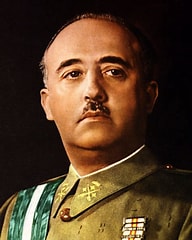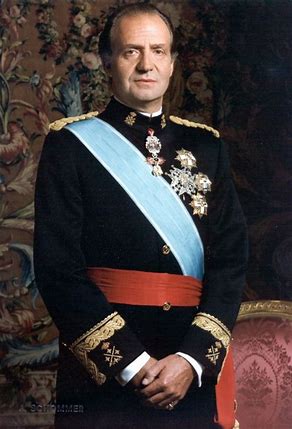 Following the death of General Francisco Franco Bahamonde in 1975, the incumbent prime minister Carlos Arias Navarro remained in post for 209 days until Adolfo Suarez was elected. He served a total of 4 years and 236 days. These were right wing politicians.
Following the death of General Francisco Franco Bahamonde in 1975, the incumbent prime minister Carlos Arias Navarro remained in post for 209 days until Adolfo Suarez was elected. He served a total of 4 years and 236 days. These were right wing politicians.


Suarez was succeeded by the first socialist prime minister of the post-Franco era, Felipe Gonzalez (PSOE). He served for a mighty 13 years and 155 days, until 14 July 1993, when he was succeeded by Jose Maria Aznar (PP) who was in charge for 7 years and 349 days.
Next came Jose Luis Rodriguez Zapatero (PSOE), known as "Mr Bean" because of his uncanny resemblance to the actor Rowan Atkinson, who portrayed the hapless Mr Bean. Despite this, Zapatero lasted 7 years and 248 days.
Then it was the turn of Mariano Rajoy (PP) for the next 6 years and 162 days.
 He was succeeded by the current PM, Pedro Sanchez (PSOE), on 2 June 2018, the day my late mother would have reached the age of 100.
He was succeeded by the current PM, Pedro Sanchez (PSOE), on 2 June 2018, the day my late mother would have reached the age of 100.
Following the inconclusive result of the 2023 general election and the failure of the PP’s, Alberto Nuñez Feijóo, who achieved the most seats, to form a majority government, it looks as though Sanchez, propped up by alliances ranging from SUMAR, to the Basque and Catalan parties, will continue as prime minister.
This all means that Spain has had a socialist pm for some 26 years; right-wing parties for 18 and a half.
Post-Franco era
 As Spain settled down politically, following the death of the dictator Franco in November 1975, aided and abetted by the monarch, King Juan Carlos I, the country stuck with the status quo, a right-wing government.
As Spain settled down politically, following the death of the dictator Franco in November 1975, aided and abetted by the monarch, King Juan Carlos I, the country stuck with the status quo, a right-wing government.
It wasn’t until Felipe Gonzalez jumped into the limelight in 1980 that Spain reverted to what was and is its true political tendency, socialism.
In power for an unprecedented 13 and a half years, Gonzalez presided over the rebuilding and modernisation of Spain and its repositioning in European politics, if not in the world.
As with all governments in power for a long time (compare the situation in the UK right now) the people got fed up and elected the opposing party, now called the Partido Popular (People’s Party).
Aznar almost managed 8 years, two terms, before the country switched back to PSOE, in the form of Zapatero.
 “Mr Bean” also lasted two terms before he was ousted by Mariano Rajoy (PP). He lasted 6 and a half years before he was toppled by the current incumbent, Pedro Sanchez.
“Mr Bean” also lasted two terms before he was ousted by Mariano Rajoy (PP). He lasted 6 and a half years before he was toppled by the current incumbent, Pedro Sanchez.
Pedro has been in power for just over 5 and a half years and is about to be invested for a second term following deals made with other parties following the inconclusive general election result earlier this year.
For this writer, essentially a liberal democrat who has no truck with right wing parties (Look where that led us in 1914, 1936 and 1939 – two world wars and a civil war), I welcome the likely continuation of Sanchez as my prime minister, although, as a foreigner I get no say, ie no vote (another story, dealt with elsewhere).
Even though he is disliked by a majority of voters, I do not understand it. Sanchez is young (40), tall, good-looking and charming, and speaks fluent English. He was decisive and strict during the pandemic (cf. Bojo the Clown in the UK), as a result of which far fewer people died of the Coronavirus than predicted. He has brought Spain to a position, some 15 years since the world-wide economic crash, where it is amongst the most prosperous in Europe and is a major voice in Brussels and Strasbourg.
Good luck to the new socialist-led coalition for the next five years, during which time I shall endeavour to change to Spanish nationality and get the vote, in time for the next general election in 2028.
© The History Man